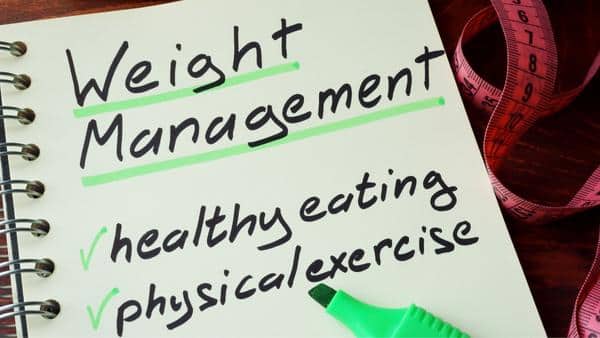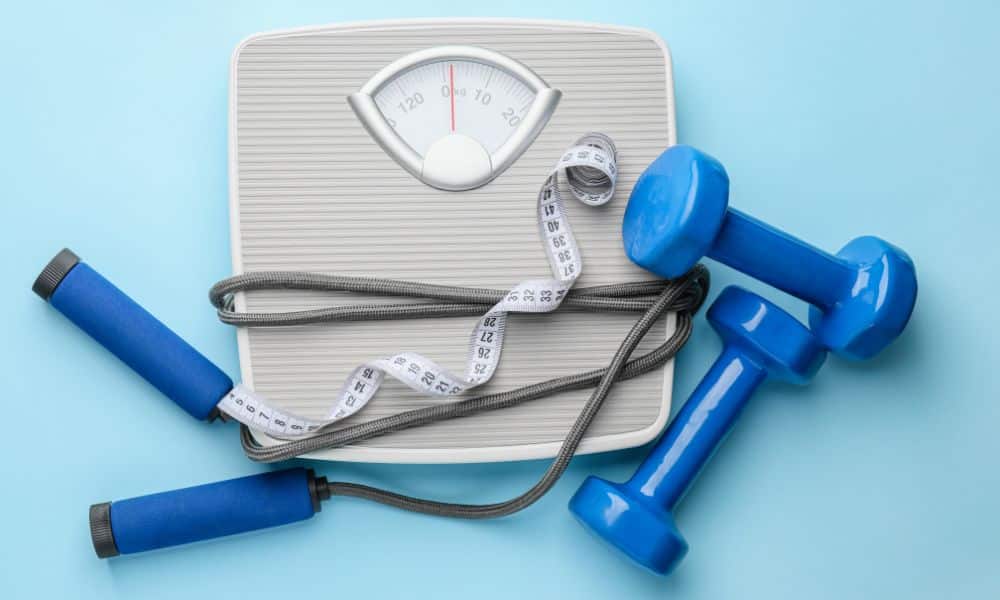Weight management for athletes and physically active individuals is pretty complex. Their nutritional needs differ from the general public since they have higher energy expenditure. They may require more calories, macronutrients, vitamins and minerals, and other healthy lifestyle modifications for peak performance and recovery.
For athletes, weight management is a lifestyle. It does not end once they have achieved their body weight goals. They will need to continue making healthy habits to maintain their overall physique and avoid losing or gaining too much weight.
Weight management
Weight management involves adopting long-term lifestyle changes to sustain and nurture a healthy body weight. This is based on a person’s age, sex, and height. Since an ideal body weight varies for each individual, it is crucial to calculate the body mass index (BMI) to identify one’s ideal weight range.
There is no specific weight to attain for athletes competing in designated sports. However, there are determinants of ideal body weight that athletes must consider regardless of the intensity of their activities. If one’s body weight furthers good health and better eating habits, minimizes the risk of getting diseases, improves physical performance, and is realistic, then it is optimal.
Now, what should athletes know to sustain their optimal weight effectively?

Maintaining a healthy weight with an energy balance
For athletes to maintain their optimal weight, they must ensure energy balance. This concept means that the energy intake (calories gained from food and drink) equals energy expenditure (calories used for breathing, digesting, and physical activities, among others). Note that body size, amount of fat and muscle mass, and physical activity primarily influence energy balance.
Energy balance and imbalance have different results. These include the following:
- More energy intake than expenditure can result in weight gain
- More energy expenditure than intake can result in weight loss
- Equal amounts of energy intake and expenditure mean that weight stays the same
What approaches can athletes incorporate into their lifestyle to maintain a healthy weight? Let’s keep scrolling!

Principles of weight management
Once the weight goal is met, an athlete is off to another critical step to managing weight—making healthy lifestyle adjustments. Here are some tips to take note of to ensure a well-managed weight.
1. Burn fats during the off-season
It pays to target reducing body weight, particularly fat mass, during the off-season. This can give athletes more time to reach their body goals. As they have ample time to achieve their body goals, they can lose weight slower, which diminishes the likelihood of muscle loss and enables them to attain peak performance. After all, it is difficult to lose weight effectively during the sports season because of the potential loss of energy levels.
Keep in mind that losing weight rapidly can pose health risks, so it is better to do it slowly but steadily. According to experts, weight loss of one to two pounds per week is recommended. For an added thrill during the off-season, check out how athletes can earn money.
2. Have a low-energy-dense diet
Adopting a low-energy-dense diet helps maintain satiety while lowering caloric intake. This means feeling full on fewer calories. This diet, when consistently maintained, results in good health and natural weight loss.
A low-energy-dense diet includes food that is high in protein but low in calories and fat. The most commonly consumed food are whole grains, fruits and vegetables, low-fat dairy, lean meats and fish, and more. For athletes, it is essential to consume enough protein since they prevent muscle loss during the weight loss process. Likewise, protein helps athletes retain more muscle while burning fat.
3. Stay hydrated
It is essential to drink adequate amounts of water, select healthy drinks, and reduce sweetened beverages consumption. Staying hydrated aids in building muscle better and ensuring athletes’ maximum performance.
In addition, staying hydrated replenishes the water lost through sweating during training. It is also vital for thermoregulation, thus helping reduce muscle fatigue, cramps, and heatstroke.
4. Do strength training
Strength (resistance) training is any exercise that involves one’s own body or equipment, like heavy and light weights. This is as important as consuming healthy meals as it helps athletes build muscle, strengthen endurance, enhance mobility and flexibility, and maintain or reduce weight.
Some strength training exercises include lifting weights, using resistance bands, cycling, dancing, push-ups, sit-ups, and squats.
5. Track meal and snack timing
The timing of meal and snack consumption is imperative to an athlete’s performance. It can help lessen training-induced fatigue, improve body composition, and prop up training goals. A better way to harness this is to eat with a routine by setting proper meal and snack timing. This results in having a satisfied appetite while allowing the muscles to receive essential nutrients.
Athletes must also eat mindfully by paying attention to portion sizes and meal content. It might also help to look at the nutritional facts on food labels.

The Last Word on Weight Management for Athletes
Both amateur and seasoned athletes must maintain a weight management plan and follow it conscientiously to ensure good health and maximum performance. Alongside their trainers, athletes can consult with a sports nutritionist to tailor their diet according to their body needs and goals.
Likewise, employing the principles of weight management can surely help athletes gear up for the next season and perform at their peak.




